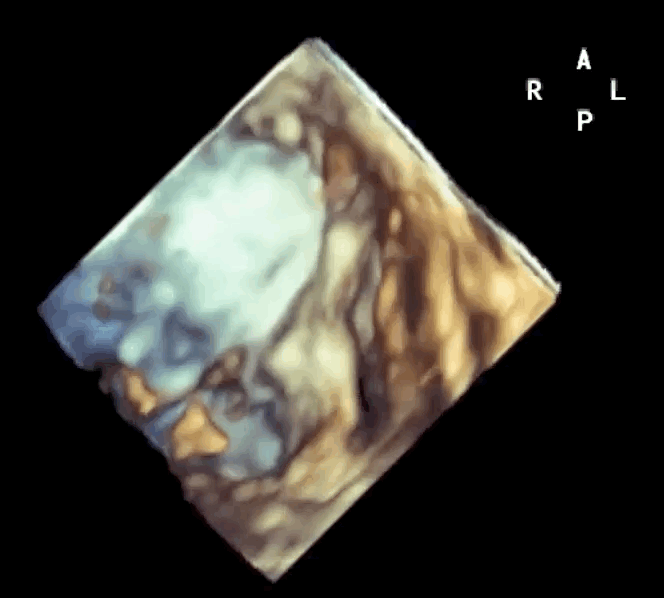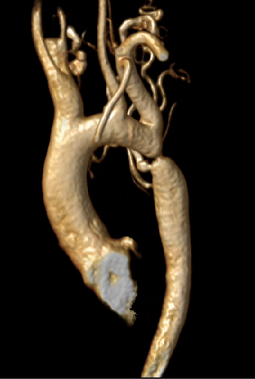Non-invasive imaging of the cardiovascular system is provided by several modalities, including echocardiography, cardiac magnetic resonance imaging (MRI), and computer tomography (CT) scanning.
Echocardiogram
The Echocardiography Laboratory currently performs approximately 10,000 studies each year. These included transthoracic, transesophageal, and fetal echocardiograms. The laboratory is staffed with full-time pediatric-trained sonographers, who perform the tests, and pediatric cardiologists, who interpret the tests. Our pediatric nurse practitioners provide medical monitoring during sedated echocardiograms, which allows for complete evaluation on younger patients who may have trouble lying still while their study is performed.
If your child is scheduled to have a sedated echocardiogram, you will be contacted with instructions; it is very important to follow these instructions. In addition to studies performed at Rady Children’s Hospital-San Diego, our sonographers record studies in the neonatal intensive care units at Sharp Mary Birch Hospital and UC San Diego Medical Center for interpretation by our cardiologists. Studies from other hospitals in our referral region are also sent to our cardiologists for interpretation.
Fraser Golding, M.D., is the medical director of echocardiography.
3D Echocardiography

3D view of the tricuspid valve in a patient with hypoplastic left heart syndrome
3D Echocardiography can be performed for select patients with congenital heart disease.
These patients may need additional visualization of their heart defects to better understand the mechanism of their disease and assist in surgical or interventional planning. Their defects can include mitral, tricuspid or aortic valve regurgitation; atrioventricular canal defects; Ebstein’s anomaly; double outlet right ventricle, or unique atrial or ventricular septal defects. This advanced imaging technique can also be utilized for 3D ventricular function assessment in various disease states.
A team of pediatric cardiologists and sonographers are trained to perform and interpret 3D echocardiography. They are Serena Sah, M.D., Dan Dyar, M.A., RDCS, Seth Degner, RDCS (AE, PE), RCS and Chandler Dixon, RDCS (PE), RCS, RVT.
MRI Scan
A heart MRI is very helpful in children with heart disease, as it provides detailed images and helps us assess heart function and flow within the blood vessels and across valves without the risk of radiation.
Sanjeet Hegde, M.D., Ph.D., is the medical director of cardiac MRI. Beth Printz, M.D., Ph.D, Hari Narayan, M.D., M.S.C.E., and Eleanor Lehnert Schuchardt, M.D., are our cardiac MRI specialists.

MR angiogram showing severe coarctation of aorta
Rady Children’s has a child-friendly, state-of-the-art MRI machine for performing cardiac MRIs, which is housed at the Sharp and Children’s MRI Center inside our Acute Care Pavilion. The GE Discovery MR450, featuring the Cinema Vision system, enables kids to watch a movie or listen to music during a MRI exam. Studies have shown that entertainment during a MRI exam can soothe anxiety and minimize claustrophobia, leading to faster and better exams in children who meet the screening criteria for non-sedated studies. Rady Children’s is the only hospital in San Diego with this innovative technology. To make the process even more kid-friendly, the entire MRI suite – including the MRI itself – is decorated in a cartoon sea creature theme.
Cardiac MRI studies that do not require sedation are also performed at the Outpatient Pavilion of Sharp and Children’s MRI Center and at UC San Diego Medical Center, Hillcrest. For more information about cardiac MRI, click here.
CT Scan
Rady Children’s has a state-of-the-art 64-sclice CT scanner that provides rapid and detailed imaging of our patients’ hearts and blood vessels. It was the first such CT scanner installed in a children’s hospital in the United States. Imaging specialists at Rady Children’s have particular expertise in minimizing the amount of radiation that children and young adults are exposed to during their scan.